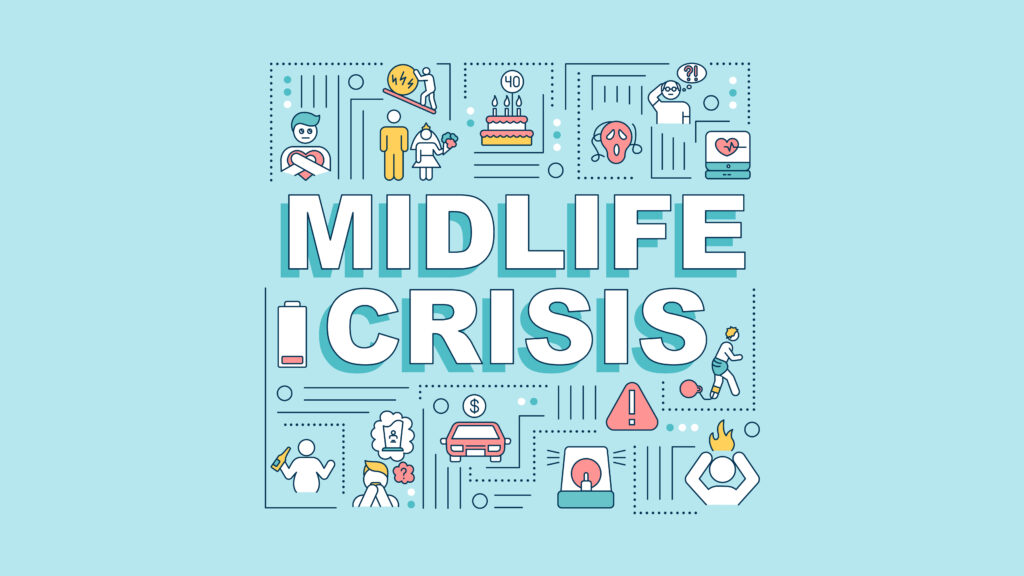Am I Living With A Narcissist?

If you think you may be living with a narcissist, it can take firm boundaries, good understanding, and a support network to maintain a sense of well-being.
In this article, we break down the signs you could be living with a narcissistic, how to deal with narcissistic traits, and when to ask for help.
What Is Narcissistic Personality Disorder?
Everyone probably knows a few people who are self-centered, have big egos, and have an unreasonably high sense of self-importance.
Narcissism is a spectrum. While narcissism is a personality trait, it’s also part of a mental health disorder. On the high end of the spectrum, you can have an individual diagnosed with narcissistic personality disorder (NPD), while others may exhibit some narcissistic behaviors.
It’s estimated that about 0.5% of the population in the United States have NPD. The disorder is more common in males, with about 75% of cases in men.
The term narcissism is used a lot in today’s world. Although it can feel like it’s describing someone who is in love with themselves, that’s not quite right. A narcissistic individual loves a version of themselves that is wildly inflated. So they can avoid feeling insecure because they have a grandiose self-image.
Signs of narcissism include:
- Being overly boastful and exaggerating achievements.
- Pretending to be superior to others.
- Lack of empathy for others.
- Looking down on others as inferior.
- Monopolizing conversations.
- Impatience, anger, unhappiness, depression, or mood swings when criticized.
- Easily disappointed when expected importance is not given.
- Always craving for “the best” in everything.
- Having a very fragile self-esteem.
- Being interpersonally exploitative for their own gain.
It’s entirely possible to exhibit narcissistic behavior without having NPD, but diagnosing narcissistic personality disorder requires a mental health professional to make an official diagnosis.
How Living With A Narcissist Affects Your Mental Health
The problem with living with or being in a relationship with a narcissist is that they often don’t accept responsibility. In turn, the other partner may bottle up feelings and not say what they really mean out of fear of judgment or a bad reaction.
Ultimately, a healthy relationship with a narcissist is dependent on the non-narcissistic partner having good self-esteem, solid boundaries, a support network, and a reason to stay.
Say you have a partner with NPD. At first, they may come across as charming and charismatic. They might shower you with compliments and gifts, making you feel special and valued. However, over time, you notice a pattern of self-centered behavior. One example is that your partner feels entitled to your personal space and time, making it difficult for you to maintain other interests and relationships outside of your relationship.
In extreme cases, narcissistic behavior can contribute to a partner feeling anxious, depersonalization, a loss of self-worth, stress, physical effects, and emotional abuse.
8 Signs You Could Be Living With A Narcissist
Keep in mind that someone could have tendencies like a big ego or an inflated view of self without being a full-blown narcissistic. Typically, narcissistic behavior will show up at some point in the relationship, even if it feels covert in the beginning. Here are eight signs you could be living with a narcissist and what that looks like in a relationship or family situation.
- Manipulative Behavior
A narcissistic spouse or family member will often be manipulative. They will utilize certain tactics to get what they want. They may not even say anything to you directly, but you feel that it won’t be good if they don’t get their own way. It feels like it’s easier to go along and agree with what they say than face the reaction. This type of controlling behavior means that one person gets what they want.
Gaslighting is a form of emotional manipulation that plants a seed of doubt in the other person. For example, your partner says something about your appearance that you find hurtful in a social setting with friends. Later on, you tell your partner how hurt you felt. They respond, “I don’t know what you’re talking about; I didn’t say anything. You’re being overly sensitive as usual; I always compliment you.”
In this situation, not only does the narcissist deny the whole scenario, but it makes the other person feel like they are crazy and that it didn’t happen at all. This is gaslighting.
- Need For Constant Validation
One study asked relatives of people high in narcissistic traits to describe their relatives and experiences. Participants said their relative had ‘grandiosity,’ requiring admiration and showing arrogance, entitlement, self-importance, and interpersonal charm.
Narcissists want validation, attention, and praise. This is a constant need, not a one-off. All the validation feeds their ego and supports the idea they have about themselves. On the other hand, a narcissist will put you in a position where you doubt your self-worth and won’t offer you the type of validation they crave. A narcissist expects others to affirm their belief in their exceptional qualities.
- Lack Empathy
Someone empathetic has the ability to understand how someone else feels. A narcissist lacks empathy and struggles to understand other people’s feelings. That means they find it difficult to make a partner feel heard, validated, and seen. Consider how your partner reacts if you have fallen out with a friend or had a bad day at work. Do they care or understand how you feel?
- Can’t Handle Criticism
A major sign that you could be living with a narcissist is an inability to handle criticism. They are extremely sensitive to criticism, no matter how small. Reactions to criticism can be extreme. They may lash out verbally, use insults, or even physical violence in some cases.
- Difficulty Maintaining Relationships
Narcissists have an inflated view of themselves. In relationships, they want to be admired to feed that view. A lack of empathy, self-entitlement, and inability to handle criticism can make it difficult for a narcissist to maintain relationships.
- Charming When It’s Needed
Someone with narcissistic behaviors can actually make you very special and important. They can switch on the charm, and it can feel like they have all the time in the world for you. Narcissists have a good ability to charm people into doing what they want. So they can appear warm and compassionate. But what’s at the core is not always what you see on the outside.
- Don’t Take Responsibility
Between a lack of empathy, defense mechanisms, entitlement, and fear of vulnerability, narcissists often don’t take responsibility for their actions.
In a household situation, this could look like one partner overspending on luxury items. When confronted about their spending, they might flip the blame on their partner and say, “If you managed the budget better and didn’t try to control me, we wouldn’t have these problems.”
You can see that when faced with a problem, they try to convince their partner that it’s their fault instead of taking responsibility.
- Lying And Superiority
Some individuals can lie effortlessly. When a narcissist lacks empathy, they can appear very convincing even when faced with evidence otherwise. Lying can be a tactic that helps to manipulate and ultimately achieve the thing that the narcissists either want to hear or do.
Coping Strategies: How To Deal With A Narcissistic Partner Or Family Member
One of the reasons that living with a narcissist is so tough is because a typical narcissist isn’t worried about their behavior. They often don’t feel the need to change. That means the responsibility to change is on the other person.
A narcissist lacks the capacity to be self-aware enough to do better because, in their eyes, they are already the best. However, that doesn’t mean that they can’t change. The likelihood of change depends on various factors, including the individual’s level of insight, motivation for change, and the specific features of their personality disorder.
When you’re dealing with a narcissistic family member or partner, it’s important for you to set boundaries. Here’s what that could look like in real life:
- Be calm and firm yet assertive
- Use “I” when expressing how you feel to avoid placing blame
- Avoid vague statements and be specific
- Set consequences when boundaries are crossed
- Prioritize self-care to build emotional resilience
- Keep a record of past incidents
- Consider professional help
When Should You Ask For Help?
If you choose to stay with someone who is either a narcissist or has narcissistic tendencies, it’s essential to understand what that means for you. If someone is diagnosed with a personality disorder, there’s only so much you can expect to change. Often, that means looking elsewhere for emotional support and fulfillment.
You don’t need to be at breaking point to ask for help. Here are some resources that can help you find the help you need:
- Thriving Center of Psychology – a platform to connect you with vetted therapists who specialize in relationships, family dynamics, self-esteem, and more.
- The National Domestic Violence Helpline – a free and confidential number to call for help and support.
- Mental Health America Warmlines – these are a list of numbers to call when you need someone to speak to, but you’re not in crisis.
Next Steps: Empowering Yourself In The Face Of Narcissistic Behavior
Speaking to a therapist can help you understand what a healthy relationship looks like and allow you to look at your situation through a different lens. An outside perspective from a mental health professional who understands NPD fully can help you figure out your next steps.
If you decide to stay in the relationship, that could look like setting healthy boundaries for yourself and your partner or going to couples therapy. If you choose to leave a narcissist, a therapist can help you to put a support network in place.
If you think you’re living with a narcissist and would benefit from talking with a therapist, book an appointment with one of our compassionate mental health professionals. Whether you’re struggling with setting boundaries, have low self-esteem, or have a difficult decision to make about a relationship, speaking with a therapist can give you a safe space to work through your emotions.

Unwind From the Chaos: A Beginner’s Guide to Mindfulness Meditation for Stress Relief
Research increasingly supports the effectiveness of mindfulness for stress reduction. Mindfulness focuses on self-management and empowering an individual to manage their own stress. So, how can mindfulness meditation help with stress, and what are the best ways to get started with your own practice? Let’s dive in.

How Do I Establish Healthy Boundaries
We often talk about setting healthy boundaries in the workplace, in relationships, with technology, and with ourselves. But what is a healthy boundary, why should you have them for your mental health, and what’s the best way to establish healthy boundaries? Let’s dive in.

Millennials in Crisis: Survey Finds 81% Can’t Afford a Midlife Crisis
Are Millennials a generation in crisis? Millennials are aging. The oldest in the generation is now 43, and the youngest is now 28. With age comes wisdom, but it also often leads to regret, nostalgia, and introspective questions about where people are in life. With the generation quickly approaching “middle age,” many are starting to feel these pressures.

What Are Practical Strategies for Managing Depression?
The number of U.S. adults who have been diagnosed with depression is on the rise, with young adults and women experiencing the most significant increases. We know that the effects of depression can ripple through every aspect of your life.
